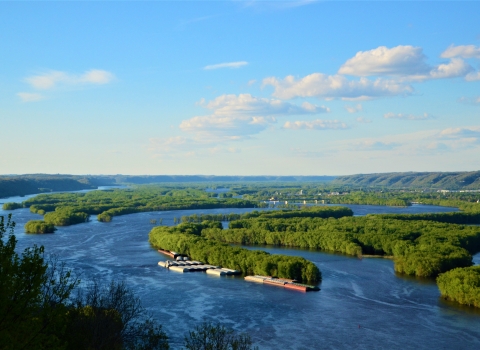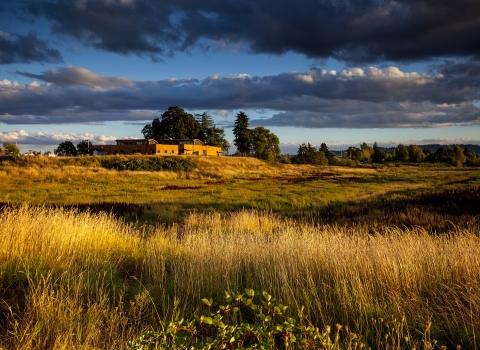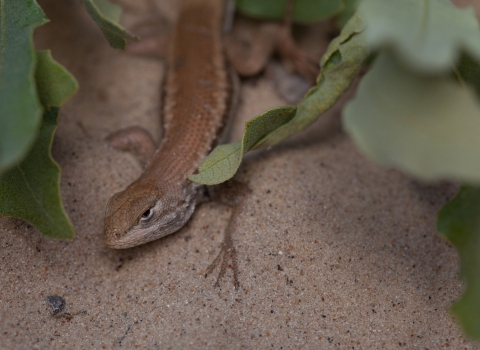DENVER – The U.S. Fish and Wildlife Service (Service) is releasing a draft recovery plan today for the Mosquito Range mustard, formerly known as the Penland alpine fen mustard. Since listing as a threatened species under the Endangered Species Act (ESA) in 1993, the Service has worked with local, state, and federal agencies as well as non-profit groups to protect this distinctive plant’s habitat while continuing to provide for access and recreation on the public lands that the plant inhabits.
A small plant with white flowers and stout leaves, the Mosquito Range mustard lives in high-elevation, alpine habitats of the Mosquito Mountain Range in central Colorado. Typically found in wetland habitats along meandering stream channels of the high plains, this plant prefers an open habitat that is not substantially overgrown by other vegetation. Because of the fragile nature of the plant’s habitat, the Service did not designate critical habitat as the publication of precise maps and descriptions of critical habitat would make this plant more vulnerable to incidents of vandalism and possibly contribute to the decline of the species.
The recovery plan was drafted by a team of state and federal officials, researchers, and representatives from regional conservation groups and academia. Acknowledged in this draft recovery plan is the discovery of new populations since the time of listing. The numbers of known populations and individuals have almost doubled since 1993. Of the 26 populations now known to exist, 11 populations have more than 200 individual plants, qualifying them as recovery populations. 64% of those 11 populations occur on federal lands, affording them some federal protections.
Focal points of the plant’s recovery program include: stabilizing the existing populations; addressing the main threats to the species from small population sizes and geographic isolation, climate change climate change
Climate change includes both global warming driven by human-induced emissions of greenhouse gases and the resulting large-scale shifts in weather patterns. Though there have been previous periods of climatic change, since the mid-20th century humans have had an unprecedented impact on Earth's climate system and caused change on a global scale.
Learn more about climate change , disturbances related to recreation, disturbances related to mining and inadequate existing regulatory mechanisms, and; long-term protection of Mosquito Range mustard and its habitat from ongoing and future threats.
The draft recovery plan is available today for public inspection in the Reading Room and will publish tomorrow in the Federal Register. The Service will accept public comments on the draft plan for 60-days after publication. Interested parties can submit comments electronically to the following email address: GrandJunctionES@fws.gov. Comments will also be accepted via U.S. mail or hand-delivery to: Field Supervisor, Grand Junction Field Office, 445 West Gunnison Ave, Suite 240, Grand Junction, Colorado 81501-5711.
The mission of the U.S. Fish and Wildlife Service is working with others to conserve, protect, and enhance fish, wildlife, plants, and their habitats for the continuing benefit of the American people. For more information on our work and the people who make it happen in the West, visit our website, or connect with us through any of these social media channels: Facebook, Twitter, Flickr, YouTube, and Instagram.



